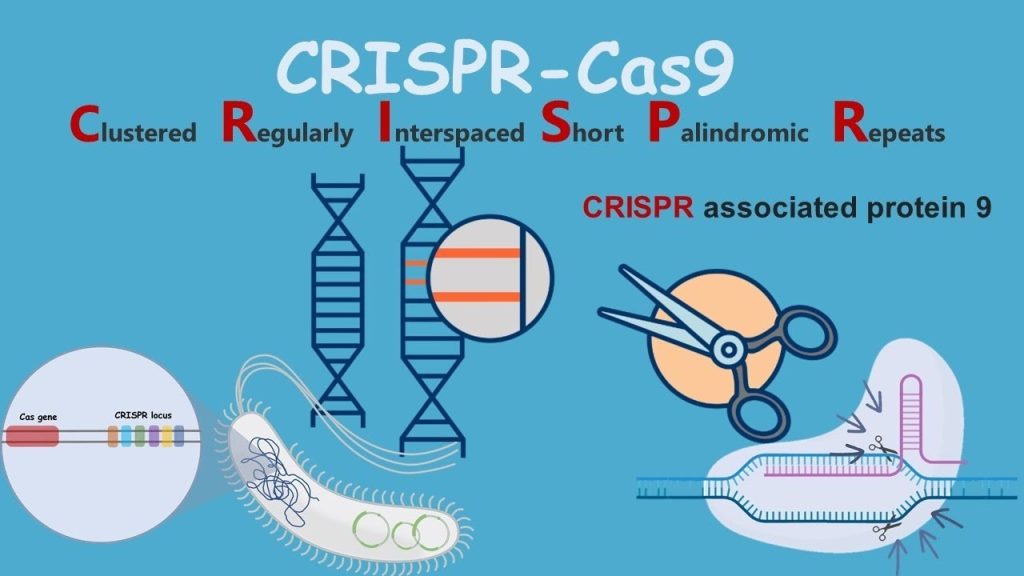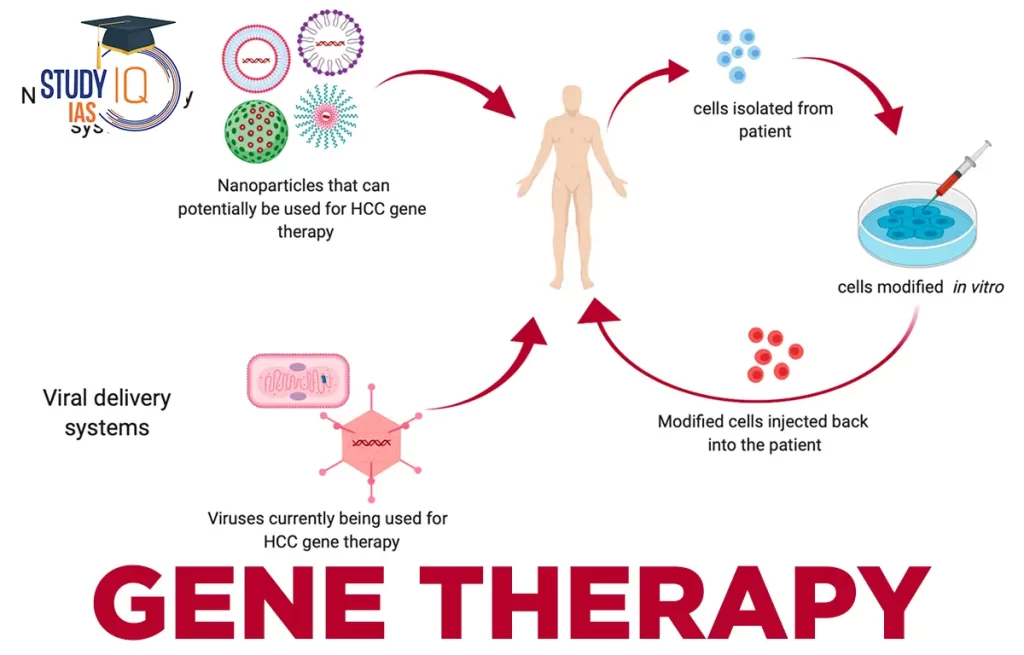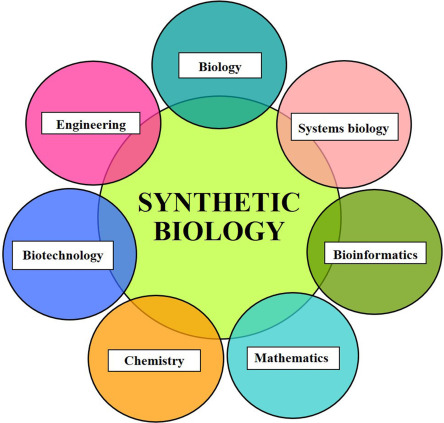Unprecedented strides in biotechnology and genetics have radically transformed the scientific landscape. These advancements, notably CRISPR-Cas9 gene editing, gene therapy breakthroughs, emergence of personalized medicine, exploration of synthetic biology and novel gene-editing techniques, signify a revolutionary era in science with far-reaching implications.
This article seeks to illuminate these pioneering developments and their potential impact on future scientific endeavors of biotechnology and genetics.
The Revolution of CRISPR-Cas9 Gene Editing
The advent of CRISPR-Cas9 gene editing has revolutionized the field of genetics and biotechnology by providing a precise and efficient tool for manipulating genomes. This groundbreaking technology has opened uncharted applications in various fields, from medicine to agriculture, shaping the course of scientific research and innovation.
However, alongside these advancements lie ethical dilemmas that cannot be ignored. The power of CRISPR to modify DNA sequences brings forth crucial questions about the boundaries of its use. The potential for misuse or unintended consequences is an ongoing concern in academic discussions on CRISPR’s ethics.
In agriculture, CRISPR-Cas9 offers promising solutions to enhance crop resistance against pests and diseases, reducing reliance on chemical pesticides with harmful environmental impacts. Yet it also raises agricultural implications concerning biodiversity loss and unforeseen ecological interactions as genetically edited crops enter our food systems.
Further exploration into Cas9’s limitations reveals gaps in current understanding. Despite its precision compared to previous genetic engineering methods, off-target effects wherein unintended areas of the genome are altered remain a significant issue. Additionally, not all organisms respond similarly to Cas9 gene editing due to varying cellular mechanisms across species.
As scientists continue pushing the frontiers of what this powerful gene-editing tool can do, future advancements may address these limitations while expanding its application scope even further. Uncertainty remains regarding potential risks and benefits associated with widespread use of such a transformative technology; thus continuous vigilance in scientific exploration and ethical deliberation is required.
Dr. Sophia Anderson, Chief Geneticist At GenoMedx Innovations
“CRISPR-Cas9 has indeed revolutionized gene editing, but it’s essential to proceed with caution. Always prioritize ethical considerations and rigorously evaluate potential off-target effects. Collaborate with regulatory bodies to ensure responsible use, unlocking the full potential of this groundbreaking technology.”
Triumphs in Gene Therapy: A New Hope for Genetic Disorders
Recent developments in gene therapy have sparked renewed optimism for the treatment of genetic disorders. This newfound hope is largely due to significant breakthroughs in gene mapping techniques, therapeutic cloning prospects, genome sequencing innovations and advancements in epigenetic therapy.
- Gene Mapping Breakthroughs: Innovations in this field have significantly improved our understanding of the human genome. High-throughput technologies such as next-generation sequencing have expedited the process of identifying disease-related genes. These advancements provide new insights into genetic diseases and pave the way for targeted therapies.
- Therapeutic Cloning Prospects: The potential of therapeutic cloning lies in its ability to produce genetically identical cells for transplantation without rejection risk. It offers a promising avenue for regenerative medicine, providing treatments for a variety of diseases including neurodegenerative disorders and diabetes.
- Epigenetic Therapy Advancements: Unlike traditional gene therapy that targets DNA sequence itself, epigenetic therapy aims at altering chemical compounds that regulate DNA expression without changing the underlying DNA sequence. This groundbreaking approach could potentially treat various diseases including cancer and neurological disorders.
However, these advances also raise ethical concerns prominently represented by the designer baby debate – an ongoing dialogue concerning potential misuse of genetic modification technologies to create ‘perfect’ offspring with chosen traits.
These recent strides are redefining boundaries within biotechnology and genetics while introducing revolutionary treatment options for previously incurable genetic disorders. Yet, they also generate complex ethical discussions underscoring a need for careful regulation as science continues to advance into uncharted territories.
Dr. Benjamin Roberts, Director of Gene Therapy Research At GeneCure Therapeutics
“The successes we’ve achieved in gene therapy are awe-inspiring. To continue this momentum, prioritize long-term safety assessments, streamline delivery methods, and foster interdisciplinary collaborations. These efforts will help us bring hope to countless individuals affected by genetic disorders.”
The Dawn of Personalized Medicine: Tailoring Treatment Plans
Innovations in personalized medicine underscore the potential for tailoring treatment plans to the individual patient’s unique genetic makeup, thereby enhancing therapeutic efficacy and minimizing adverse effects. This scientific revolution is transforming healthcare through advances such as Precision Pharmacogenomics, Individualized Immunotherapies, Genomic Diagnostics, Personalized Oncology, and Tailored Neurological Treatments.
Precision Pharmacogenomics uses genomic information to optimize drug therapy by analyzing how an individual’s genes affect their response to medication. Individualized Immunotherapies involve manipulating a patient’s immune system to target disease-specific antigens. These therapies offer unprecedented possibilities for treating a range of conditions from cancer to autoimmune diseases.
Genomic Diagnostics involves sequencing an individual’s genome to identify disease-associated genetic variants. It plays a pivotal role in early detection of diseases and identification of risk factors. In the realm of oncology, genomic diagnostics have facilitated the development of Personalized Oncology which focuses on creating tailored treatment strategies based on the specific genetic alterations found in a person’s tumor.
Tailored Neurological Treatments are another emergent area that utilizes knowledge about individual genetics and brain chemistry to develop more effective treatments for neurological disorders.
| Field | Description | Example |
|---|---|---|
| Precision Pharmacogenomics | Optimizes drug therapy based on genomics | Adjusting Warfarin dosage based on VKORC1 gene variant |
| Individualized Immunotherapies | Modulates immune system using disease-specific antigens | CAR-T cell therapy for leukemia |
| Genomic Diagnostics | Identifies disease-associated genetic variants | BRCA mutations indicating breast cancer risk |
| Personalized Oncology | Develops tailored treatments based on tumor genome | Targeted therapy using EGFR inhibitors in lung cancer with EGFR mutation |
| Tailored Neurological Treatments | Uses genetics & brain chemistry for effective neurological treatments | Dopamine agonists or levodopa use in Parkinson’s Disease with LRRK2 mutation |
Thus, personalized medicine epitomizes the paradigm shift towards more precise, predictive and preventive healthcare approaches.
Karan Tiwari, Content Marketer At Wiretroop
“Personalized medicine is the future, but it requires a data-driven approach. Invest in robust patient data collection, secure data management, and cutting-edge AI-driven analytics to truly tailor treatment plans. Empower patients with information and engage in shared decision-making for optimal outcomes.”
Exploring the Possibilities With Synthetic Biology
Synthetic biology, a rapidly evolving field, offers promising opportunities to design and construct new biological parts, devices, and systems, as well as the redesign of existing natural biological systems for useful purposes. This innovative discipline has led to significant advancements in various spheres such as bio artificial organs, DIY biohacking, bio computer potentials, biofuel innovations and bioluminescent applications.
- Bio Artificial Organs: These refer to synthetic organs created through biotechnological methods and can be used to replace or support failing human organs. They offer an alternative solution to organ transplantations which are hindered by limited availability.
- DIY Biohacking: A relatively new trend that enables individuals to manipulate their own genetic material with the aim of improving health or physical abilities using simple tools available at home. It is a testament to the democratization of synthetic biology.
- Bio Computer Potentials: The idea here is harnessing the processing capabilities of biological organisms – particularly DNA – for computational purposes. Biological computing holds potential for massive parallel processing tasks due its inherent nature.
The impact of synthetic biology is further manifested in areas like biofuel innovations which involve developing sustainable energy resources using genetically modified organisms; this could significantly reduce dependence on fossil fuels.
Finally, there are fascinating developments in bioluminescent applications where naturally glowing organisms are manipulated through genetic engineering techniques for various uses such as lighting solutions or medical diagnostic tools.
Dr. Oliver Mitchell, Health Writer At Techmandap
“Synthetic biology opens doors to remarkable innovations. However, ensure responsible research and development by actively engaging with bioethicists and regulatory bodies. Foster collaboration within the scientific community to harness the full potential of synthetic biology safely and sustainably.”
Emerging Gene Editing Techniques: Beyond CRISPR
Emerging gene editing techniques, beyond the extensively studied CRISPR-Cas9 system, are opening new frontiers in the realm of molecular biology and therapeutics. These breakthroughs, including Base Editing and Prime Editing, push the boundaries of what was once thought possible with genetic manipulation.
Base Editing represents an evolution in editing techniques that enables precise conversion of a single base pair without inducing double-strand DNA breaks. Prime Editing further refines this approach by enabling all 12 types of point mutations and small insertions or deletions without requiring donor DNA templates or introducing double-strand breaks.
However, these advances also bring forth significant ethical considerations. Questions surrounding Gene Editing Ethics such as consent, safety, equity in access to technologies, and potential misuse must be addressed rigorously. This necessitates comprehensive frameworks for oversight and regulation.
The future implications of these emerging techniques are vast; they hold promise for correcting genetic diseases at their source. Yet there remain substantial risks associated with genomic manipulation – unintended off-target effects could potentially cause more harm than good.
Regulatory challenges loom large on the horizon as well. The global scientific community grapples with establishing standards for acceptable use cases and experimental protocols involving these novel technologies.
Dr. Laura Patterson, Chief Scientific officer At GeneFusion Technologies
“As we explore new gene editing techniques, never lose sight of the fundamental principles of safety and efficacy. Conduct thorough preclinical studies, embrace open-source collaboration, and leverage AI to design and optimize novel editing tools. Always strive for the highest ethical standards in our research endeavors.”
Conclusion on Biotechnology and Genetics
In conclusion, the intricate advancements in biotechnology and genetics are ushering in a new era of medical possibilities. The advent of CRISPR-Cas9 gene editing, triumphs in gene therapy, personalized medicine tailoring treatment plans, exploration of synthetic biology and emerging gene editing techniques beyond CRISPR all represent quantum leaps into the future. As these innovations continue to evolve, one can only speculate about the profound impact they will have on healthcare and society at large.
⚠ Article Disclaimer
The above article is sponsored content any opinions expressed in this article are those of the author and not necessarily reflect the views of CTN News








